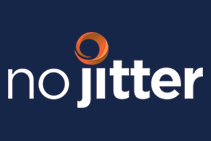There's a new way of thinking taking hold within contact centers that will dramatically change how a business can differentiate itself.
The change in mindset? When it comes to communications technology and its impact on service delivery, contact center managers and agents no longer have to settle for an out-of-the-box solution that checks most, but not all, of the boxes on their wish list.
In other words, contact centers can finally get what they really want and what their customers really need, instead of "making do" based on the constraints of what an off-the-shelf software package has to offer.
These new options are all due to advances in platform technologies. With a platform offering, you can have customized solutions that give you the flexibility to stand out in the marketplace without sacrificing time, money and security.
You've likely heard the word "platform" everywhere; it has quickly become a popular buzzword in the communications industry. But platforms are more than a passing fad. They are the next logical step in the evolution of contact center delivery options, prompted by a need for flexible, highly customized solutions that enable businesses to improve the customer experience and differentiate themselves in competitive markets.
As a result, it's not surprising that many C-level executives are eager to embrace platform offerings. But buyer beware: Not all platforms are the same when it comes to scalability, security, customization and ease of management. So while the concept of platform is worthy of the attention it's gaining, it is important for buyers and decision makers to understand the differences between the various flavors of platform offerings available on the market.
For starters, some vendors will simply label a suite of interconnected products as a platform. While an interconnected product suite is convenient, the use of the word "platform" is really a marketing term. Today's advanced platforms go beyond that, delivering solutions that allow businesses to create custom software applications by developing and deploying code with the platform as a base. They also provide developers with a set of tools and frameworks, including APIs (Application Programming Interface), SDKs (Software Development Kit) and code-level access that can be used to quickly and easily build custom, Web-based software applications.
Taking it yet a step further are true Platform-as-a-Service (PaaS) solutions. In addition to the advanced platform offerings noted above, custom apps built on a true PaaS offering are also fully hosted, scaled and managed by the vendor. This helps contact center personnel or their IT and development teams eliminate the cost, time and hassle of setting up and managing hardware, while ensuring their apps are properly supported and can quickly, easily grow with their business.
The technical definitions are important to understand. However, the real value comes in understanding what a true PaaS solution can do for your contact center. Here are three critical benefits that PaaS delivers:
With the innovative platform solutions available today, there's no need to settle for a less-than-perfect solution anymore. Off-the-shelf software solutions work just fine for many businesses, but for organizations that want the freedom and agility of a customized solution, a true PaaS offering is worth a deeper look.







